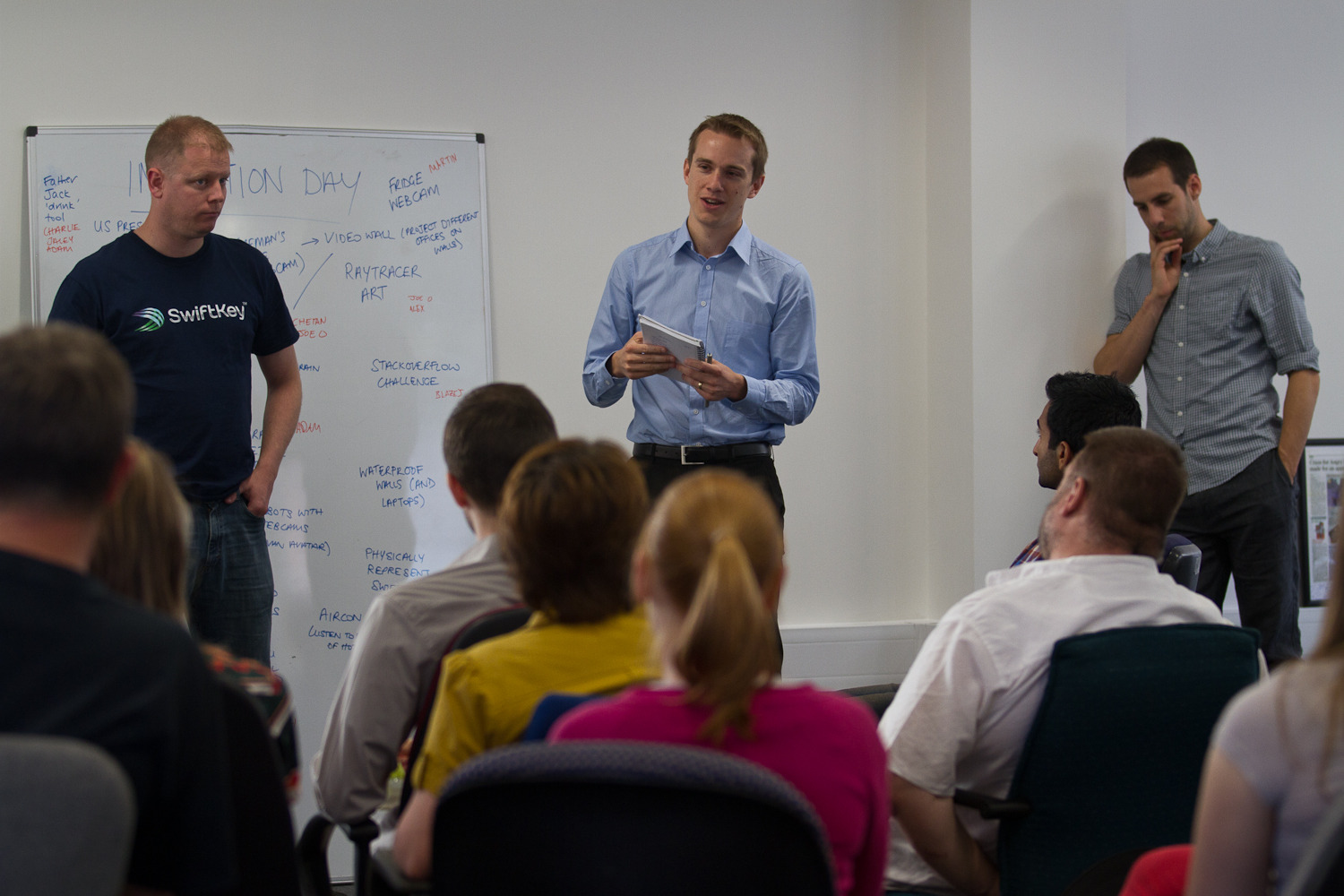For a business which can trace its history to an observation made back in a meeting in 2008, SwiftKey has made rapid and impressive progress.
The venture, which in its purest form provides a quicker and easier way for users of smartphones to key in text, has its roots in London – a city which is fast developing as a hub for exciting companies in the space.
Set up by Jon Reynolds and Ben Medlock, the business has been able to ride the wave of smartphone penetration and is now one of the all-time most popular applications (apps) on the Google Play store.
Not content with five-fold growth each year, the start-up now has its eyes firmly set on the American and Asian markets. Despite raising a venture capital-backed war chest of $17.5 million to pursue world domination, the business plans to firmly keep its feet planted in London.
To coincide with its Series B funding round, GrowthBusiness spoke with CFO Richard Gibson to find out how recent progress had been achieved and just where the business was hoping to end up.
‘At the time of the last investment round [$2.4 million in December 2011] we had just launched to the market and were building up a presence,’ Gibson says.
‘We then went on to secure licensing agreements with a number of OEM manufacturers, such as Samsung, giving us commercial traction which allowed us to grow the business on the back of revenues and cash rather than having to raise new money.’
And grow it has, to a state where it now has over 100 staff and bases on the West Coast in San Francisco and in the Asian market through an office in Seoul.
Numbers game
Growth since 2010 has been 3,785 per cent, while the last 12 months has seen progress of 577 per cent. Its total user base, which includes users via its OEM deals, has moved from the 1 million mark in 2011 past 100 million.
To date, some 1.8 trillion of characters have been typed by SwiftKey users – which equates roughly to 9,000 copies of the Encyclopaedia Britannica.
Its latest funding round has seen pan-European firm Index Ventures join the investor pool.
Gibson reveals that Index were very much SwiftKey’s chosen backer, and will bring with them the kind of experience and industry contacts that the start-up’s existing angel backers have brought.
‘You only have to look at Index’s track record and reputation, they are one of the top European VCs with a good foothold in the US.
‘What Index have is a wonderful network where businesses like us can thrive. It’s a network where if we have a question, they will know someone who can help us.’
More on Index Ventures investments:
- MyHeritage nets return capital from Index Ventures
- Imran Amed’s The Business of Fashion dressed for growth
- Secret Escapes aims for membership growth
Gibson is no stranger to the institutional investor game, having left a ten-year stint as an investment manager at NVM Private Equity to join SwiftKey in 2011.
The reason he left the private equity world, he says, was that he was all to aware that he could sit on the sidelines guiding, but that getting his sleeves rolled up and becoming more involved was much more to his liking.
SwiftKey’s latest funding round also serves as a tipping point, as it begins to spread its wings and engage on more of a global level. The business will be keeping its headquarters in London, but co-founder Jon Reynolds will be moving to San Francisco to head up growth out there.
Capital consensus
Commenting on the company’s continued growth in the UK, Gibson says that there is no shortage of creative talent to fill the growing number of vacancies at SwiftKey – especially considering the rest of continental Europe is on the doorstep.
‘As our business has grown, we have attracted some very talented people from around Europe,’ he says.
‘Take yesterday, I was looking over a new hire who is coming in from Denmark. Being in London, our catchment area is Europe, and it is an attractive mix of young people.’
Recruitment for SwiftKey has only been tough, he says, due to its constant desire to hire the very best. It has also been hard work maintaining the cultural tone of the business through its rapid growth, but ongoing events such as monthly hackathons and a commitment to collaborative working have sorted this out.
In the future, SwiftKey will be continuing with its dual strategy of deriving revenues through its smartphone app and OEM licences. But Gibson and the business see great potential in taking the technology which has already been developed and solving other problems in the same market.
‘The fact that we will be on millions of smartphones by the end of the year is a great achievement,’ Gibson declares.






